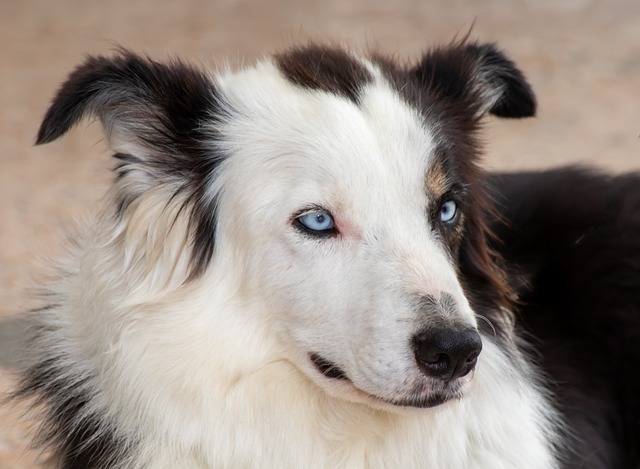
Is standing for a long time harmful to a dog's body
When we see dogs performing on their hind legs in circuses or street entertainers training dogs to stand for prolonged periods to beg,
When a gentle dog suddenly growls at family members or paces restlessly after eating, the link between food and aggression is often overlooked. Watching furry companions with red-rimmed eyes due to emotional abnormalities, owners inevitably wonder: does the daily dog food hide a "code" triggering aggression? Behind a dog's aggression may lie physiological imbalances and emotional distress caused by food. With compassion for furry friends, we uncover the hidden connection between food and aggression from a scientific perspective.
From the perspective of pet nutrition, dietary structure affects dogs' neurotransmitter secretion. Serotonin and dopamine are key substances regulating emotions. When lacking Omega-3 fatty acids or B vitamins, the probability of dogs' emotional instability increases by 28%. Like a circuit missing a voltage regulator, nutritional deficiencies imbalance neural transmission, making dogs more likely to trigger aggressive behaviors over trivial matters. A Schnauzer lacking vitamin B6 for a long time became irritable from gentle due to abnormal dopamine metabolism, returning to calm after dietary adjustment.
Food allergies are invisible triggers of aggression. When dogs are allergic to ingredients like beef or wheat, histamine released by the immune system causes skin itching and intestinal discomfort. Sustained physical pain makes dogs sensitive and irritable, with slight touches potentially triggering attacks. A veterinarian treated a Poodle allergic to chicken protein, whose aggressive behaviors significantly decreased after switching to hypoallergenic food—similar to humans feeling irritable with toothaches, dogs also experience "emotional outbursts" due to allergic discomfort.
Additives and preservatives may interfere with dogs' neural regulation. Propylene glycol and BHT in commercial dog food, as well as artificial pigments and monosodium glutamate in snacks, reduce the sensitivity of serotonin receptors in the brain. Clinical observations show that "switching to natural food" is a key measure in many cases of improved aggressive behaviors. Like poor fuel malfunctioning an engine, additives may cause dogs' emotional regulation systems to "short-circuit".

High-sugar and high-fat diets cause metabolic disorders affecting emotions. Excessive intake of jam or fried foods leads to sudden drops in dogs' blood sugar, triggering mood swings similar to human "hypoglycemic irritability". Joint pain caused by obesity further increases dogs' aggression due to physical discomfort. A Bichon Frise addicted to sweet cookies would growl at approaching people each time blood sugar dropped, returning to gentleness after dietary adjustment.
Individual differences complicate food's impact on aggression. Labrador retrievers from the same litter may react differently to identical foods due to genetic variations (such as the CYP2D15 gene). This reminds us that each dog is unique, requiring dietary adjustments based on its physiological characteristics.
Notably, incorrect feeding methods may be mistaken for food-caused aggression. Pacifying a barking dog with snacks creates the wrong perception that "aggression = reward". Irregular feeding triggering "food scarcity anxiety" also exacerbates food-guarding aggression. These situations require correction through scientific feeding management rather than blaming the food itself.
When we start recording dogs' dietary diaries, switching to hypoallergenic food for allergic individuals, and adjusting recipes for obese dogs, every change is filled with love for furry friends. An owner eliminated dietary triggers for an aggressive Border Collie, and three months later, the dog finally accepted petting peacefully—teaching us that food is not just an energy source but also the cornerstone of emotions.
May every dog anxious due to food regain peace through owners' scientific adjustments. When they can eat peacefully in the sun and respond to companionship with gentle eyes, all food-related troubles will transform into tender understanding. A dog's world is simple: a suitable meal and thoughtful care can keep them away from emotional haze, warming our lives with pure love.

When we see dogs performing on their hind legs in circuses or street entertainers training dogs to stand for prolonged periods to beg,

When we prepare to greet the dog's warm greeting as usual, we find that the once bright and clear eyes have become red and swollen, and the dog keeps scratching with its claws, with a look of discomfort and helplessness in its eyes.

When you notice your beloved dog constantly scratching, biting itself, or see its once-smooth coat becoming red, swollen,

When you see your beloved dog constantly scratching or notice suspicious black specks in its smooth fur, it’s natural to feel concerned. Parasites are a common health issue for dogs,

When we look into the eyes of dogs, the originally bright and clear eyes suddenly show distressing red bloodshot, and even become swollen and secrete more.

At the moment when the door closes, there comes the heart wrenching barking of dogs inside the house, or when they come home and see a chewed sofa and scattered slippers,